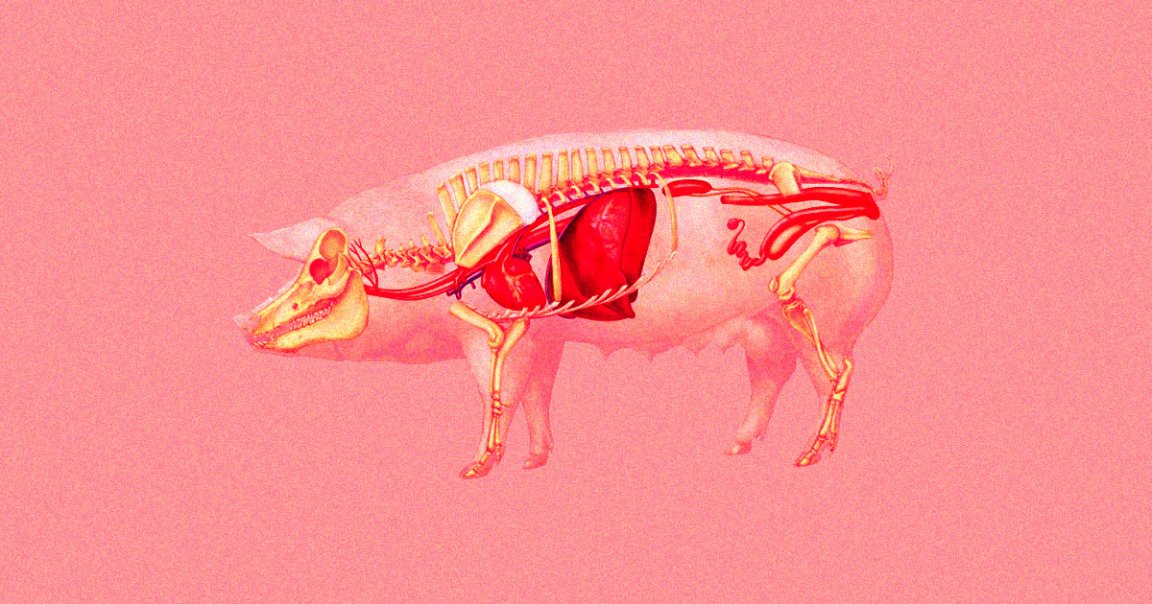
A pig kidney has continued to function inside of a human body for roughly two months, the longest documented instance of such a procedure, known as a xenotransplant.
It’s a promising sign that we could one day start relying on non-human donors for organ transplants, a possible answer to an ongoing organ shortage that has plagued the country for many years. Only around 20,000 people end up getting a new kidney a year in the US, despite there being around 100,000 people on the organ waitlist.
Researchers at NYU Langone performed the transplant on July 14. The recipient was a 58-year-old man who was “declared dead by neurologic criteria before the xenotransplant,” according to a press release.
On September 13, or 61 days later, the experiment reached its previously agreed-upon end date, and the man was removed from the ventilator.
In other words, the man was not responsive after receiving the organ, but doctors received his family’s consent. Now his remains are with his family.
While that may sound grisly, there are plenty of benefits to this kind of approach.
“In order to create a sustainable unlimited supply of organs, we need to know how to manage pig organs transplanted into humans,” said team lead Robert Montgomery, professor and director of the NYU Langone Transplant Institute, in the statement. “Testing them in a decedent allows us to optimize the immunosuppression regimen and choice of gene edits without putting a living patient at risk.”
Fortunately, the researchers are optimistic about the latest results.
“We have learned a great deal throughout these past two months of close observation and analysis, and there is great reason to be hopeful for the future,” he added. “None of this would have been possible without the incredible support we received from the family of our deceased recipient. Thanks to them, we have been able to gain critical insight into xenotransplantation as a hopeful solution to the national organ shortage.”
While it’s the longest a pig kidney has survived inside the human body, it’s far from the first attempt.
In September 2021, the same team conducted the first-ever xenotransplant of a genetically modified pig kidney to a human, an experiment that was followed up with a second attempt just two months later. Last summer alone, the team tried two more times.
The kidney used in the latest procedure came from an FDA-approved “GalSafe pig,” which was engineered by Virginia-based gene-editing tech company Revivicor.
The gene responsible for rejecting pig organs was simply “knocked out,” per the press release, allowing the recipient’s body to accept the kidney. Additionally, the animal’s thymus gland, which remained attached to the kidney, ensured the recipient’s immune system didn’t start attacking the new organ.
The latest procedure was actually a simplified attempt compared to previous experiments and only included a single gene modification instead of up to ten, according to the statement.
But it wasn’t entirely smooth sailing. The man still required immunosuppression medication due to a “mild rejection process” that started one month into the experiment.
In short, plenty more research still needs to be done before we can determine if such a procedure will ever be safe enough for a conventional human patient.
The researchers are now gearing up for clinical trials, which will first require approval from the FDA.
“Why we’re doing this is because there are a lot of people that unfortunately die before having the opportunity of a second chance at life,” NYU transplant immunologist Massimo Mangiola told the Associated Press. “And we need to do something about it.”
More on kidney transplants: Scientists Intrigued by Bionic Kidney That Survives Inside Pig